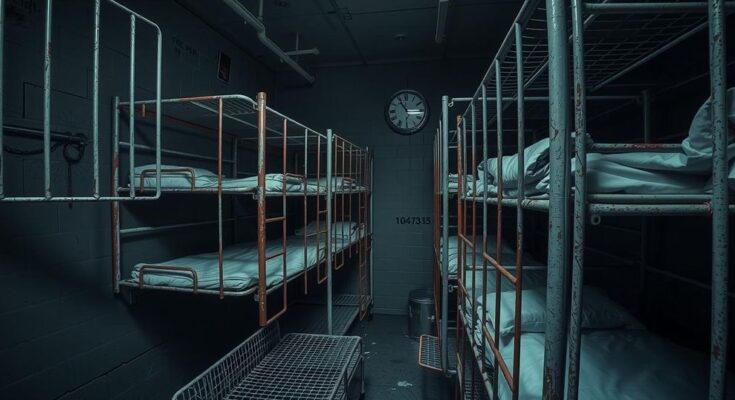In the Dominican Republic, prisons are plagued by severe overcrowding, where inmates often find themselves sleeping on filthy floors amid unsanitary conditions. A staggering 60% of the 26,000 prisoners are held in pretrial detentions, some languishing for up to 20 years without charges. Despite the legal framework for bail and alternative measures, these are seldom enforced, leaving many trapped in this grim reality.
La Victoria Prison, the most overcrowded facility, houses over 7,000 inmates, overwhelmingly surpassing its intended capacity of 2,100. An alarming fire in this institution last year claimed lives, starkly underscoring the hazards posed by the dilapidated conditions. Critics of the system highlight the neglect that leads to deteriorating health and inadequate medical care for detainees.
In response to the crisis, the Dominican government has initiated reforms, with President Luis Abinader establishing a commission led by Roberto Santana, a former prison director with firsthand experience of imprisonment under oppressive regimes. Santana advocates for the closure of La Victoria and Azua Prison 15 due to their inhumane environments. Despite plans and investment for new facilities, maintenance issues have exacerbated the dire circumstances in existing prisons.
Corruption remains a pervasive threat within the prison system, with officials reportedly profiting from illicit dealings. A proposed prison expansion intended to alleviate overcrowding has been stalled due to these corrupt practices. To tackle the issue, the government aims to construct 25 new prisons by 2028, yet vital challenges persist, including the ongoing detention of individuals despite court-ordered releases, often hindered by administrative delays and unpaid fines.
Dominican prisons face extreme overcrowding and human rights challenges, with over 60% of inmates in pretrial detention without charges. La Victoria Prison exemplifies the crisis with its shocking inmate levels and poor conditions. The government, while pledging reforms and building new facilities, struggles with corruption and delays that threaten to undermine progress.
The Dominican Republic’s prison system is in a state of emergency, grappling with severe overcrowding, human rights violations, and rampant corruption. The government’s proposed reforms and new constructions may hold promise, but actual implementation and significant systemic changes are crucial to ensure humane treatment and uphold the rights of those incarcerated.
Original Source: dominicantoday.com



